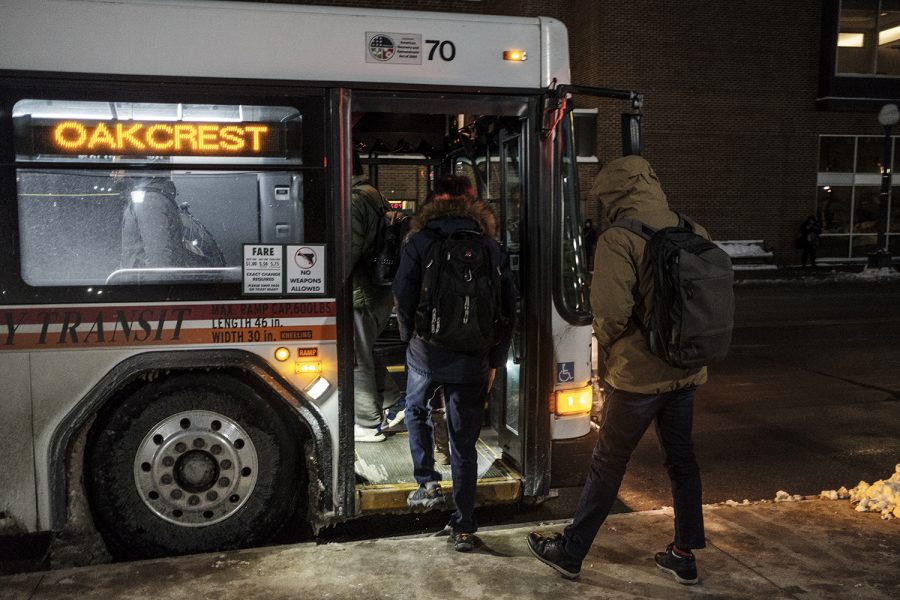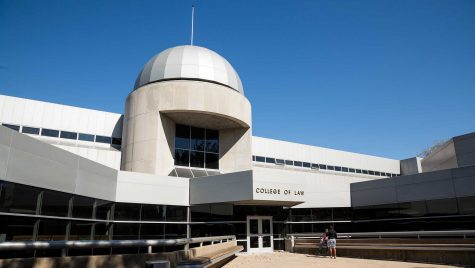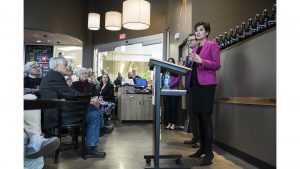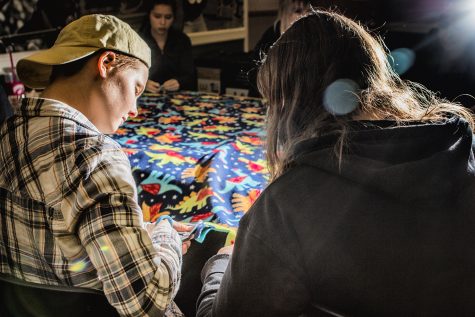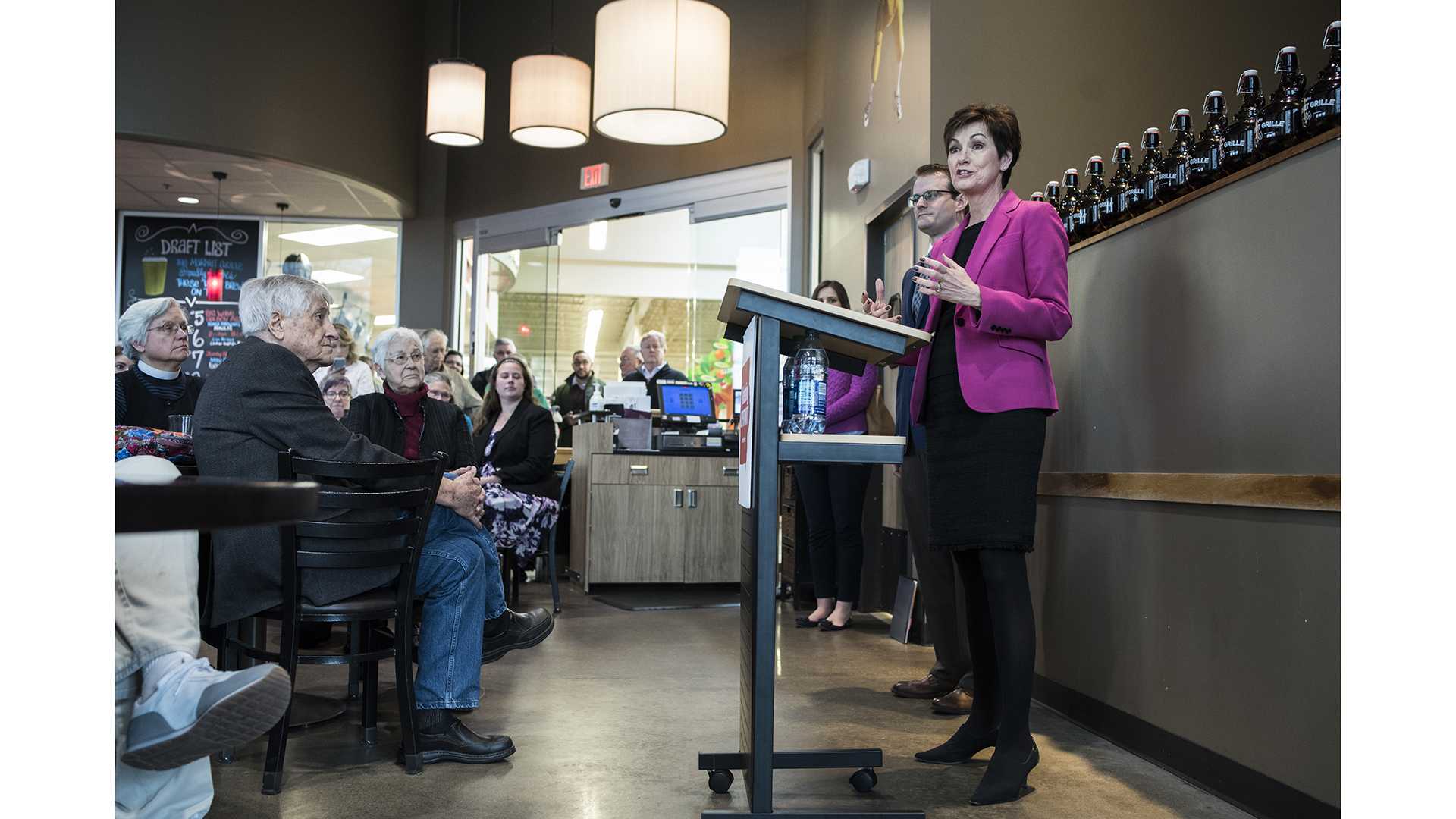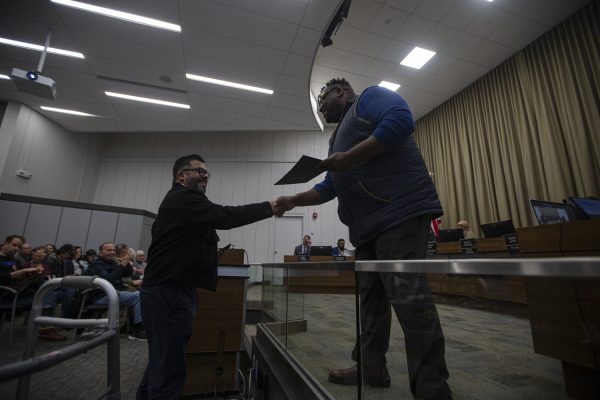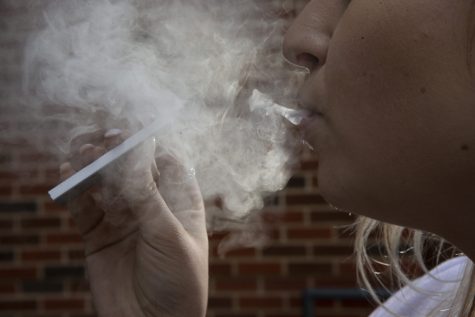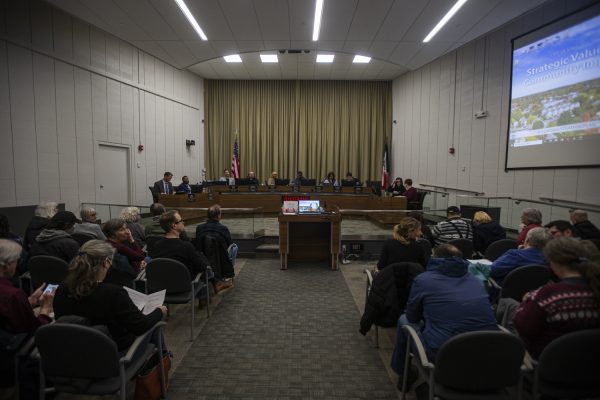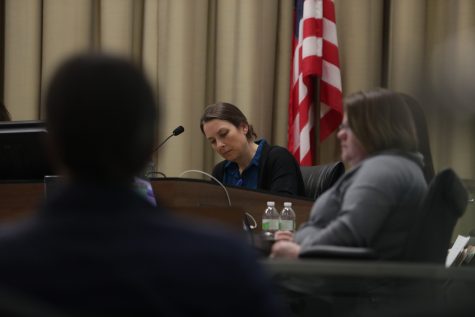Iowa City implements free transit to encourage voting
On Nov. 6, all rides on the Iowa City transit buses will be free and will bus directly to most polling places.
Commuters load and unload busses at the Downtown interchange in Iowa City on Wednesday, Feb. 7, 2018.
October 29, 2018
Iowa City Transit will offer free transportation to any riders for Election Day on Nov. 6 to remove barriers between people and the polls.
The decision follows many other U.S. public-transportation systems, as well as Uber and Lyft, who have said they will offer free or discounted rides to the polls.
Darian Nagle-Gamm, the transportation director for Iowa City, said riders will not be required to show a pass, pay a fare, or show voter registration when boarding the bus.
Nagle-Gamm is in her first year as the transportation director. She has previous experience with transportation through the Metropolitan Planning Organization and has worked with Iowa City for a decade.
Nagle-Gamm recommended riders determine their polling place beforehand and said Google Transit will help riders determine which bus routes they need to take.
Iowa City Transit offers direct buses to all polling places except for Iowa City Precinct 10, which is held at the Terry Trueblood Recreation Area, because there is no regular route to that area.
Nagle-Gamm said she is not sure how greatly free transit will help the election, but hopes it will remove one potential barrier people may have to voting.
“We want to help use public resources to lessen [the barrier to get to the polls],” Nagle-Gamm said. “We’re utilizing a public service to facilitate the greatest public service.”
In the recent City Council special election, voter turnout was 9 percent — 4,199 votes of the city’s 46,461 registered voters, according to the Johnson County Auditor’s Office.
RELATED: 2018 Voter Guide
City Councilor and community organizer at the Center for Worker Justice Mazahir Salih said when she ran for a seat on council, the people who voted for her were people who had never voted in Iowa City.
“A lot of people who looked like me came out and started engaging [in the community],” Salih said. “Lots of people who have an accent or wear a scarf never saw [someone who looked like me] run before.”
Salih said she hopes the free transit will encourage those who may not usually think to vote to head to the polls.
Joe Coulter, a chair on the Iowa City Human Rights Commission, said the free transit supports the right to vote.
RELATED: Campus partners with Google Maps to provide trip-planning functions
“This will help people in the lower socioeconomic class, which would include minority individuals, and others who are disabled or elderly,” Coulter said. “[Free transit] could enhance the participation of some groups that are really important with regard to sharing their views about candidates and where candidates stand on things such as Medicare and Medicaid.”
Nagle-Gamm and other city officials have not yet decided whether this service will be implemented again and whether it would be used for all elections or just major ones.
However, Salih said she has seen some community members express concerns over the city allocating money toward free transit, but she believes it is the right way for the city to use funds.
“It is a way to help people, and when people participate, we can have all voices,” she said.



